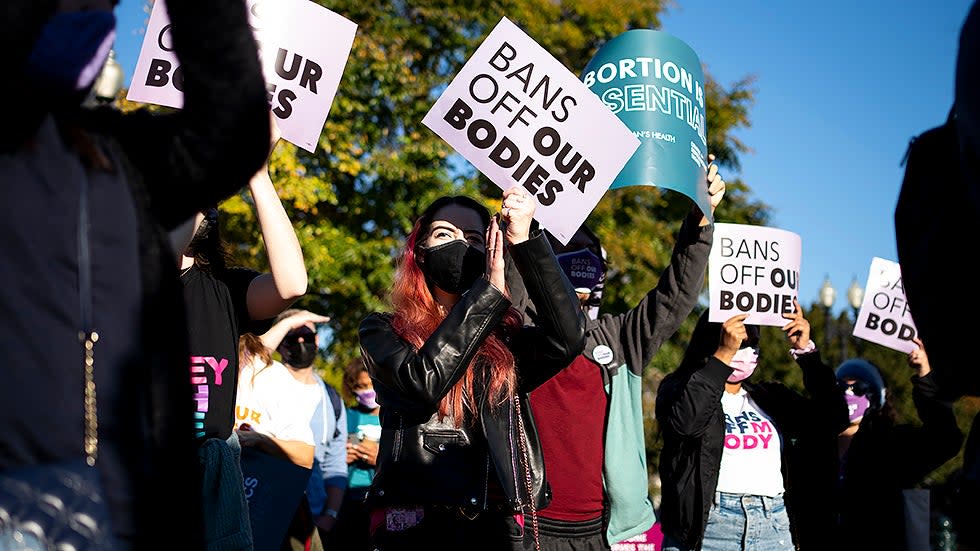Gary Peters details abortion story in defense of Roe v. Wade

- Oops!Something went wrong.Please try again later.
Sen. Gary Peters (D-Mich.) detailed his first wife's abortion in an article for People magazine this week in a call to defend Roe v. Wade.
Peters' wife had an abortion because of a medical emergency, a story he first shared after the nomination of Amy Coney Barrett to the Supreme Court.
"Now, as the Supreme Court is reviewing a Mississippi law banning abortion at 15 weeks and overturning Roe v. Wade as we know it," Peters wrote. "I am sharing this story once again - because the stakes have gotten even higher."
Peters said that his wife was pregnant with their child when her water broke early, jeopardizing her health and the life of the baby. They were told by a doctor that "there was zero chance the baby could survive."
Peters' wife faced the possibility of a sepsis infection that would endanger her life, but was not able to procure an abortion because the heartbeat of the fetus could still be detected.
Peters and his wife ultimately found another doctor who agreed to perform an emergency abortion.
"For many this issue is not just about a legal case," Peters said of the upcoming Supreme Court decision. "It's about extremely tough, heart-breaking, painful decisions."
Peters emphasized the importance of the Senate in confirming or rejecting Supreme Court nominees.
"Senate campaigns are the frontlines of the fight," Peters said. "We must send a firm message: attacks on Roe v. Wade and the rights of women to make their own health care choices will not be tolerated."
Supreme Court Justice Stephen Breyer announced his resignation from the court on Thursday, giving President Biden a chance to nominate his first justice.
However, Breyer will stay on through this term, and whoever Biden selects, conservative justices will maintain a 6-3 majority on the court.
During a tense hearing in December, those conservative justices indicated a willingness to uphold Mississippi's 15-week abortion ban and place new restrictions on abortion. Yet it's unclear how far the court might go in unwinding the legal regime that emerged from Roe v. Wade.

